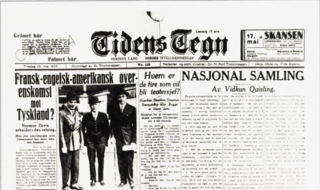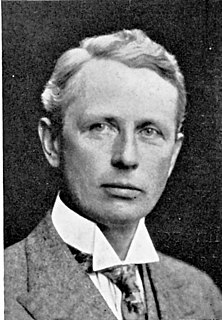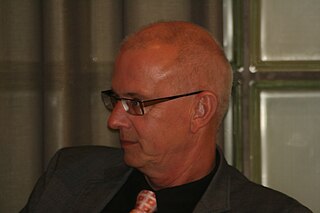Media bias
- Distribution of mandates after the actual 2009 Norwegian parliamentary election:
- Distribution of mandates by Norwegian journalists sympathies before the 2009 Norwegian parliamentary election:
As with other related countries, the Norwegian media is often criticized of being biased towards the political left. Political scientist Frank Aarebrot claims to present evidence of this in terms of both Norwegian journalists and editors. [2] Aarebrot has said that "it is serious when Norwegian journalists massively support the political left, but it is a bit more serious when it actually to a greater degree applies to Norwegian editors than among the journalists". He also expressed concern that journalists who sympathise with the Progress Party may have a lesser chance to get hired than journalists with political sympathies close to editors. [3]
For instance, in the actual 2009 election, the Progress Party received 41 mandates, while by journalists it would have received none. The Christian Democratic Party and Center Party would also have been left without representation, while the revolutionary socialist party Red would enter parliament with 9 mandates. The Socialist Left and Liberal Party would also receive significant gains. [2] In 2003, as much as 36% of Norwegian journalists said they would vote for the Socialist Left Party alone, with only 25% saying that they would vote for any of the right-of-center Liberal, Christian Democratic, Conservative or Progress Party combined. [3] News commentator Frank Rossavik once said that if a journalist would stand forward as a Progress Party voter, it would have been "social suicide", and more devastating than withdrawing from the Norwegian Union of Journalists. [4]
Norwegian editors have as well been proven to have leftist political views, with a 2008 survey showing that the Labour Party would have been given a majority in parliament alone with 85 representatives. [3]
The notion of political bias based on the sum of individuals' party selection has been criticized. Among others, conservative historian and politician Francis Sejersted holds that the general media is neither left-slanted nor right-slanted, but "media-slanted". This means that media across the political spectrum have a tendency to choose the same angle on a case, focusing on personification and dramatic events. [5]













